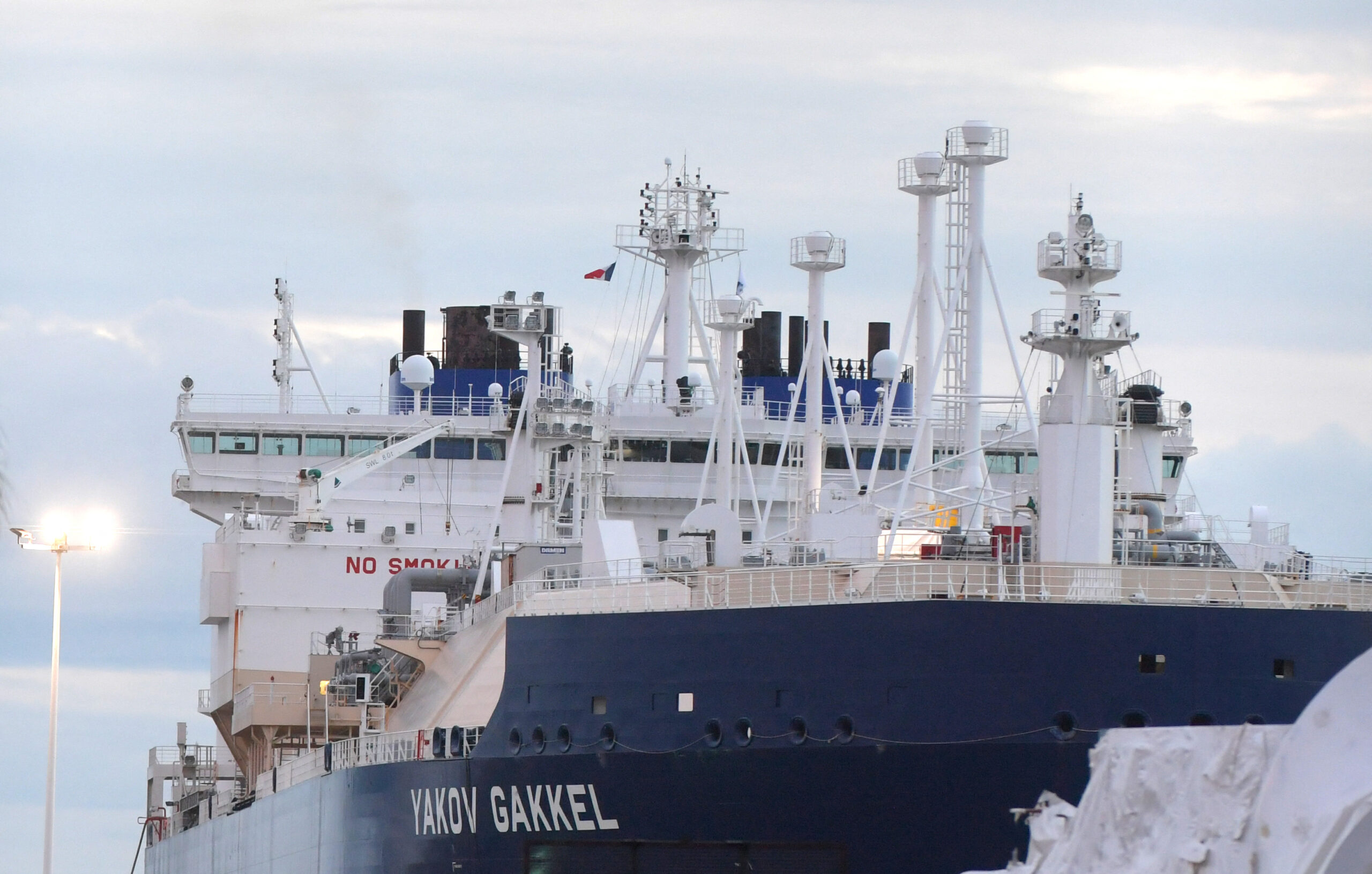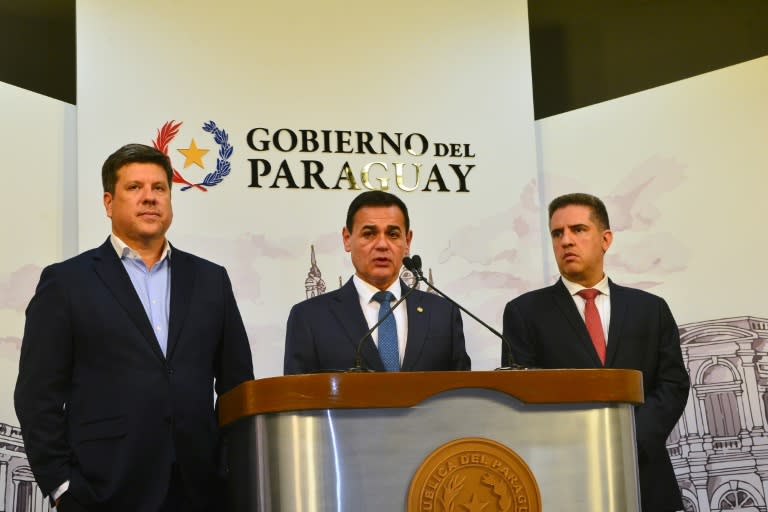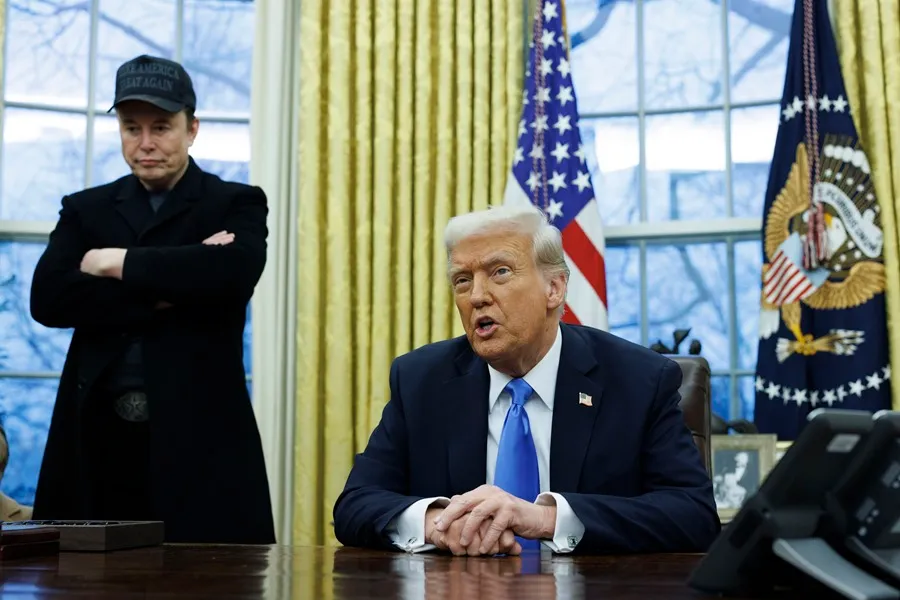International
G7 to implement Russian oil price cap ‘urgently’

AFP | by Sebastien ASH
G7 industrialised powers vowed Friday to move urgently towards implementing a price cap on Russian oil imports in a bid to cut off a major source of funding for Moscow’s war in Ukraine.
The G7 said it was working towards a “broad coalition” of support for the measure but officials in France urged caution, saying a final decision could only be taken once all 27 members of the European Union had given their assent.
Households on the continent have borne the brunt of rising energy prices, with governments under pressure to alleviate the pain of the resulting high inflation.
“Russia is benefitting economically from the uncertainty on energy markets caused by the war and is making big profits from the export of oil and we want to counter that decisively,” German Finance Minister Christian Lindner said in a press conference after the move was announced.
The aim of the price cap on oil exports was to “stop an important source of financing for the war of aggression and contain the rise in global energy prices”, he added.
Ahead of Friday’s decision, Kremlin spokesman Dmitry Peskov sounded a clear warning.
The adoption of a price cap “will lead to a significant destabilisation of the oil markets,” and force American and European consumers to pay the price, he said.
And Russia’s Deputy Prime Minister Alexander Novak had warned on Thursday that Moscow would “simply not supply oil and petroleum products to companies or states that impose restrictions,” according to Russian news agencies.
‘Powerful tool’
At a summit in June, the G7 leaders agreed to work towards implementing the ceiling on crude sales.
In their statement, finance ministers from the G7 said they would “urgently work on the finalisation and implementation” of the long-considered measure, without specifying the cap level.
The price cap was “one of the most powerful tools we have to fight inflation and protect workers and businesses in the United States”, US Treasury Secretary Janet Yellen said in a statement Friday.
She said the measure already was beginning to influence prices, with countries that have not yet committed to join the cap able to negotiate lower prices from Russia.
“We’re already seeing this initiative pay off because countries that are buying Russian oil are signing deals with Russia to sell oil at greatly discounted prices,” Yellen said on MSNBC.
She said the capped price “will be set at a level that will continue to make it profitable for Russia to produce,” rather than follow through on Moscow’s threat to shut-in their oil and keep it off world markets.
The G7 move would block Russia from getting any kind of service, including maritime insurance, on its petroleum shipments unless the product is sold at or below the cap, she explained.
And Yellen noted that G7 countries provide the vast majority of such services, including maritime insurance, 90 percent of which come from Britain and the EU.
A senior US Treasury official told reporters that the cap would include three prices, one for crude oil and two for refined petroleum products.
The French finance ministry said technical work on the price cap was still in progress.
“It is clear that no final decision can be taken until we have consulted and obtained unanimous support from all 27 member states of the European Union,” it said.
“We support all measures that reduce the income that Russia derives from the sale of oil,” French Finance Minister Bruno Le Maire added.
EU Commissioner Paolo Gentiloni said the bloc aims to find a deal by December 5 for crude oil and February 5 for petroleum products.
‘Broad coalition’
The G7 also voiced ambition to extend the measure beyond the bloc, saying it was seeking to form a “broad coalition” of support for the oil price cap to “maximise” the effectiveness of the measure.
The ministers urged “all countries that still seek to import Russian oil and petroleum products to commit to doing so only at prices at or below the price cap”.
The push to get as many countries as possible to go along with the cap is expected to be a key topic for discussion by leaders at the G20 summit in Bali on November 15 and 16.
The initial cap would be set “at a level based on a range of technical inputs” the G7 ministers said, adding that its effectiveness would be “closely monitored”.
Analysts warned, however, that the cap may yet fuel another rise in prices.
The cap would introduce new risks for the oil market by “potentially disrupting Russian energy supplies”, Capital Economics analyst Liam Perch said in June. “This could push global energy prices up further.”
International
Paraguay summons Brazilian ambassador over Itaipú espionage scandal

Paraguay summoned the Brazilian ambassador in Asunción on Tuesday to demand “explanations” and called its own representative in Brasília for consultations following Brazil’s acknowledgment of an espionage operation. The Brazilian government, led by President Luiz Inácio Lula da Silva, attributed the operation to the previous administration.
The surveillance effort aimed to uncover Paraguay’s position in now-suspended negotiations with Brazil regarding the pricing of electricity from the binational Itaipú hydroelectric plant, according to reports in the Brazilian press.
The Brazilian government “categorically denied any involvement in the intelligence operation,” stating in a Foreign Ministry communiqué on Monday that the espionage was carried out under former President Jair Bolsonaro’s administration (2019-2023).
“The operation was authorized by the previous government in June 2022 and was annulled by the interim director of the (state intelligence agency) ABIN on March 27, 2023, as soon as the current administration became aware of it,” Brazil’s government asserted.
Paraguay’s Foreign Minister Rubén Ramírez announced that Brazilian Ambassador José Antonio Marcondes de Carvalho was summoned “to provide detailed explanations” regarding the operation. Additionally, Paraguay recalled its diplomatic representative in Brasília “to report on aspects related to the intelligence activity conducted by Brazil regarding Paraguay’s government affairs.”
International
Elon Musk to step down as government advisor, per Trump insiders

President Donald Trump has informed his inner circle that Elon Musk will be stepping down from his role as a government advisor, according to a report by Politico today.
Citing three individuals close to Trump, Politico states that the president is pleased with Musk’s leadership at the Department of Government Efficiency (DOGE), where he has implemented significant budget cuts. However, both have agreed that it is time for Musk to return to his businesses and support Trump from a different position outside the government.
A senior administration official told Politico that Musk will likely maintain an informal advisory role and continue to be an occasional visitor to the White House. Another source warned that anyone thinking Musk will completely disappear from Trump’s circle is “deluding themselves.”
According to the sources, this transition is expected to coincide with the end of Musk’s tenure as a “special government employee,” a temporary status that exempts him from certain ethics and conflict-of-interest regulations. This 130-day period is set to expire in late May or early June.
International
Milei vows to make Argentina so strong that Falkland Islanders “choose” to join

Argentine President Javier Milei reaffirmed his country’s claim over the Falkland Islands (known as the Islas Malvinas in Argentina) and praised the role of the nation’s armed forces during a ceremony marking the “Veterans and Fallen Soldiers of the Malvinas War Day,” commemorating 43 years since the 1982 conflict with the United Kingdom.
Argentina continues to assert sovereignty over the islands, arguing that Britain unlawfully seized them in 1833.
“If sovereignty over the Malvinas is the issue, we have always made it clear that the most important vote is the one cast with one’s feet. We hope that one day, the Malvinas residents will choose to vote with their feet and join us,” Milei stated.
“That is why we aim to become a global power—so much so that they would prefer to be Argentine, making deterrence or persuasion unnecessary. This is why we have embarked on a path of liberation, working to make Argentina the freest country in the world and once again the nation with the highest GDP per capita on the planet,” he added.
-

 International5 days ago
International5 days agoSon of journalist José Rubén Zamora condemns father’s return to prison as “illegal”
-

 Central America3 days ago
Central America3 days agoU.S. Homeland Security Secretary urges Mexico to strengthen Guatemala border
-

 International5 days ago
International5 days agoMiyazaki’s style goes viral with AI but at what cost?
-

 Central America4 days ago
Central America4 days agoPanama police clarifies that Interpol alert for Martinelli is still pending
-

 International3 days ago
International3 days agoTrump urges Putin to reach peace deal
-

 International23 hours ago
International23 hours agoParaguay summons Brazilian ambassador over Itaipú espionage scandal
-

 Central America3 days ago
Central America3 days agoPanama grants Martinelli 72-hour extension to travel to Nicaragua
-

 International4 days ago
International4 days agoDeportation flight lands in Venezuela; government denies criminal gang links
-

 Sports23 hours ago
Sports23 hours agoFilipe Luis debuts as coach in Copa Libertadores with Flamengo
-

 Central America20 hours ago
Central America20 hours agoGuatemalan police officer killed in mob riots over baby kidnapping
-

 International23 hours ago
International23 hours agoElon Musk to step down as government advisor, per Trump insiders
-

 International23 hours ago
International23 hours agoICE agent’s arrest of suspect sparks controversy in Boston
-

 International23 hours ago
International23 hours agoMilei vows to make Argentina so strong that Falkland Islanders “choose” to join
-

 Sports23 hours ago
Sports23 hours agoVenezuela investigates 18 baseball players seeking asylum in Spain
-

 International23 hours ago
International23 hours agoÓscar Arias: Trump’s trade policies are a step backward















